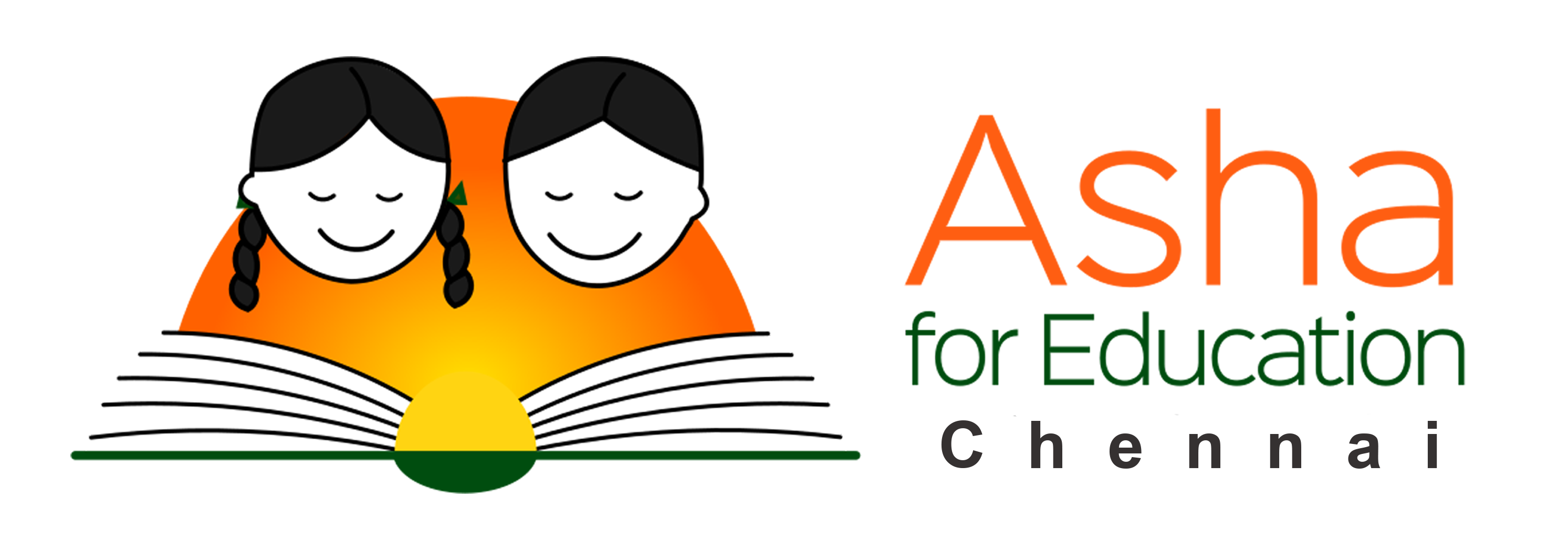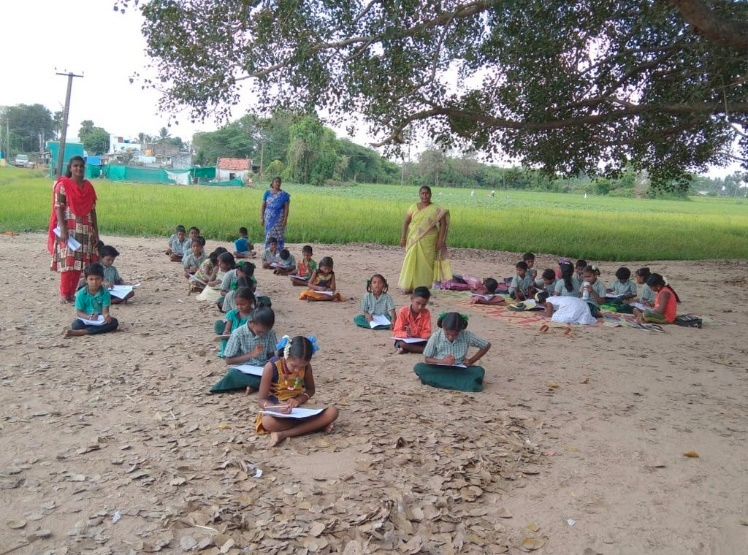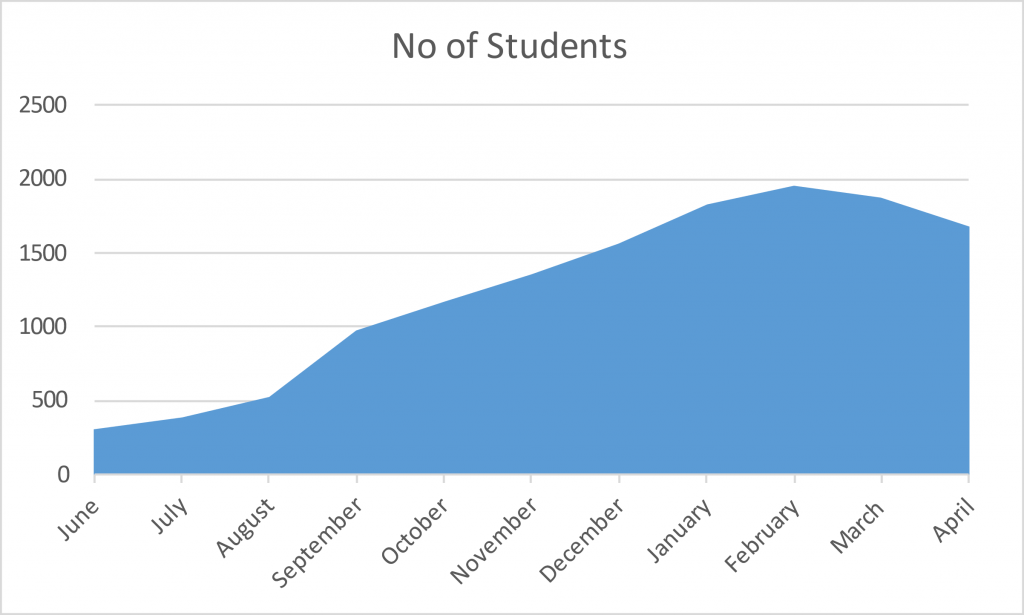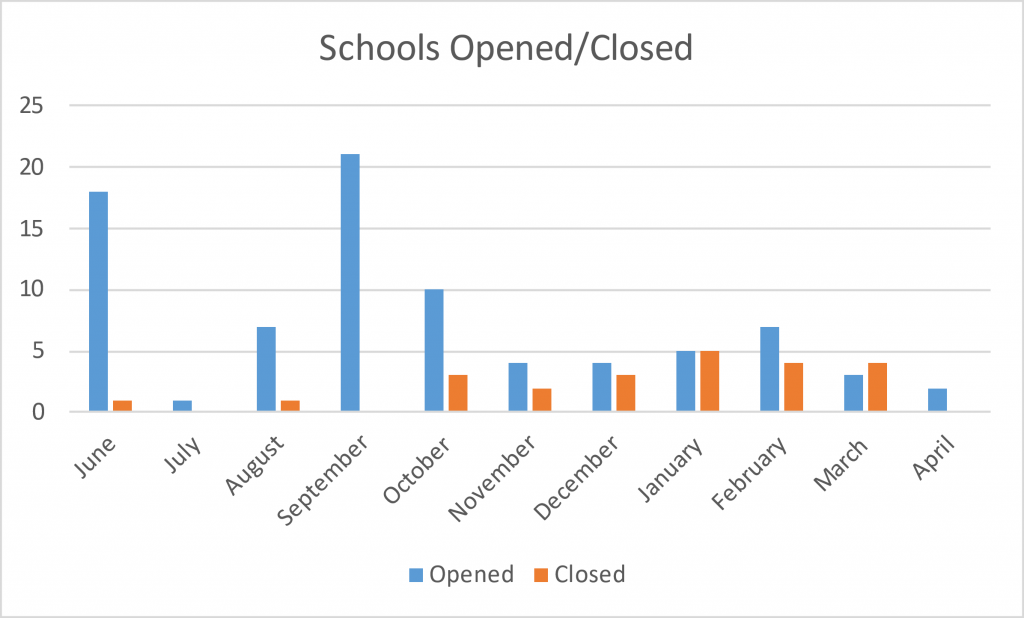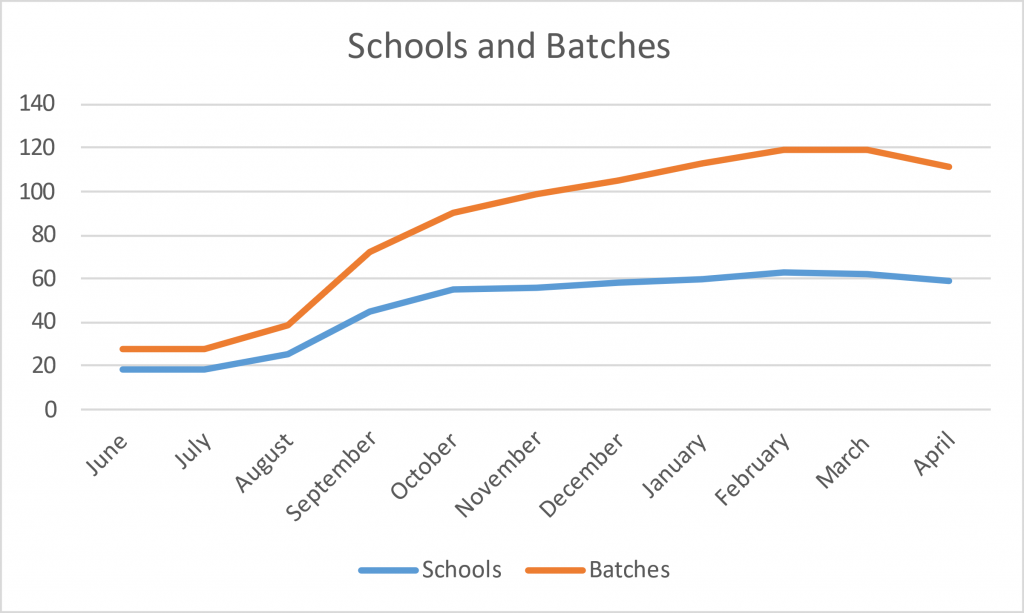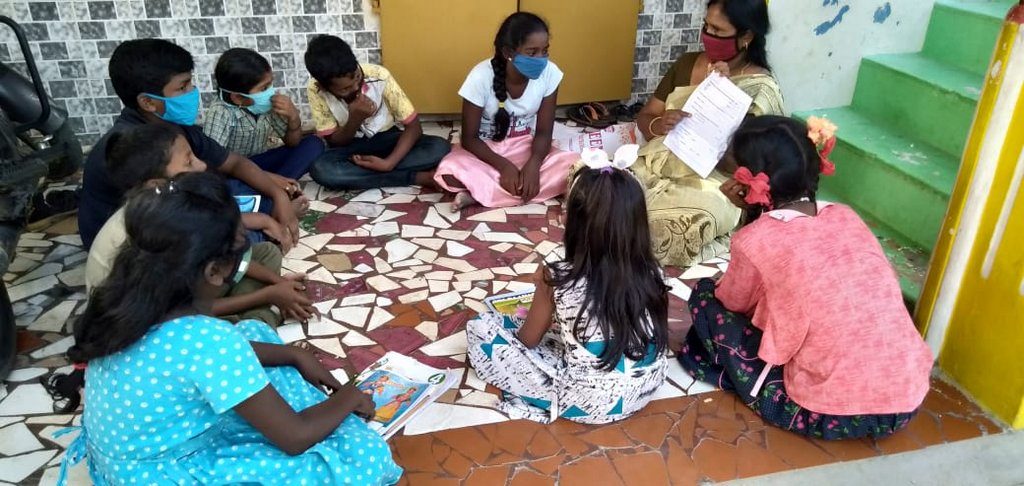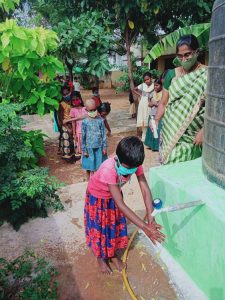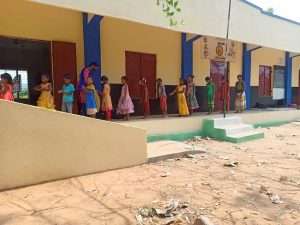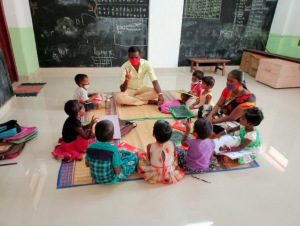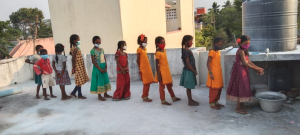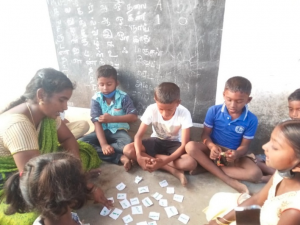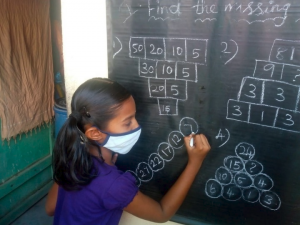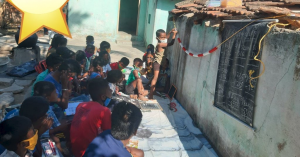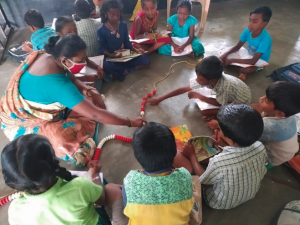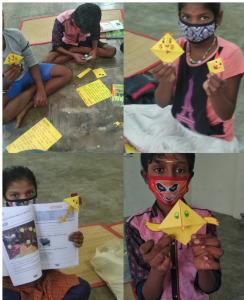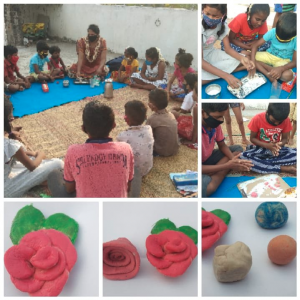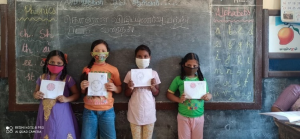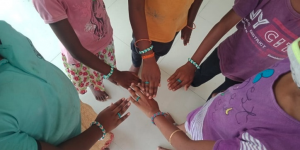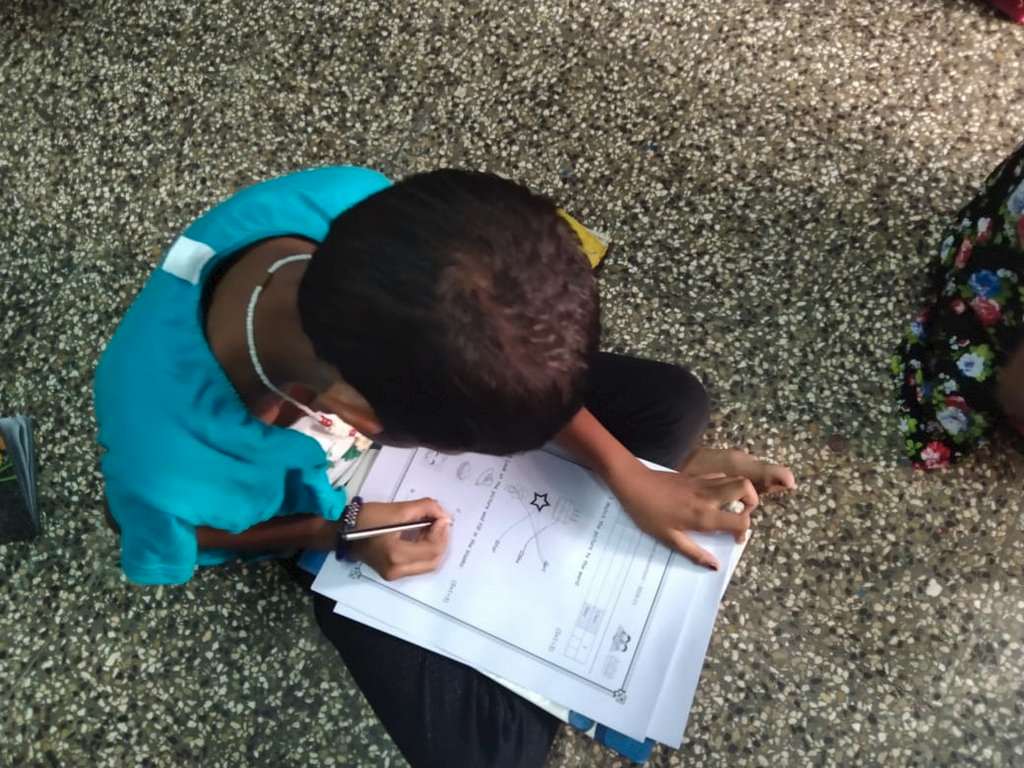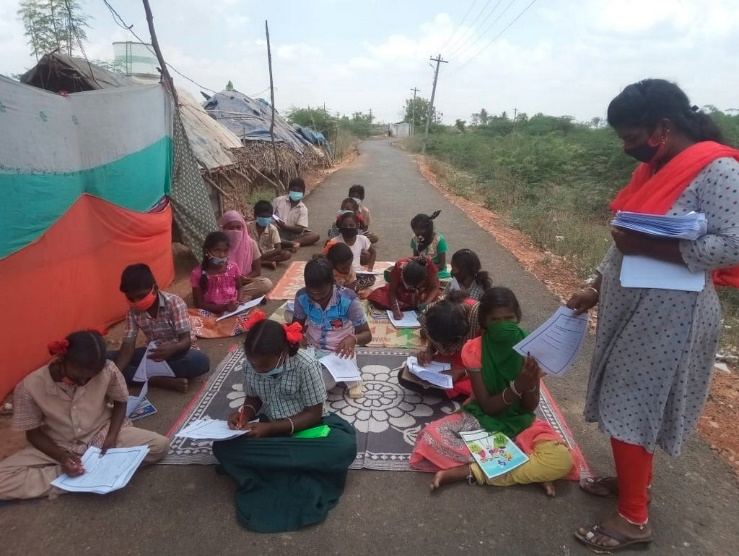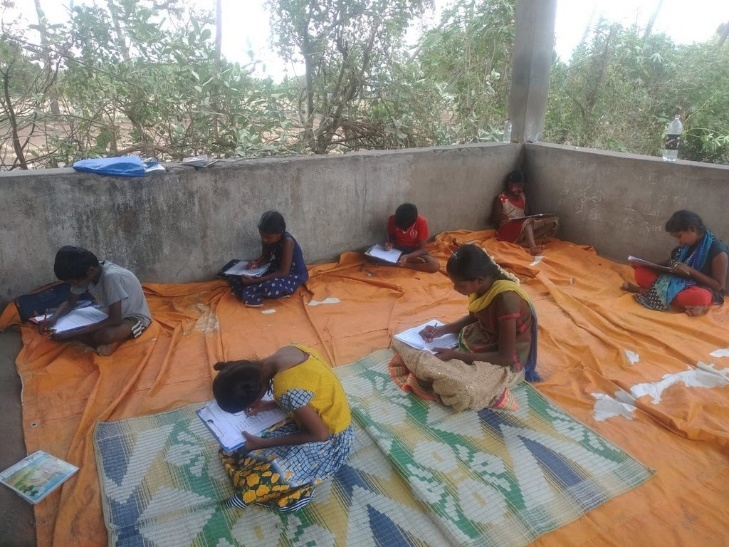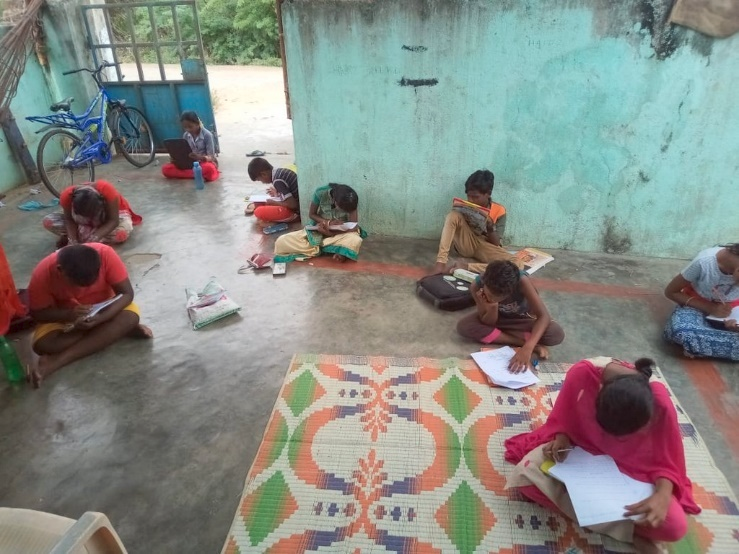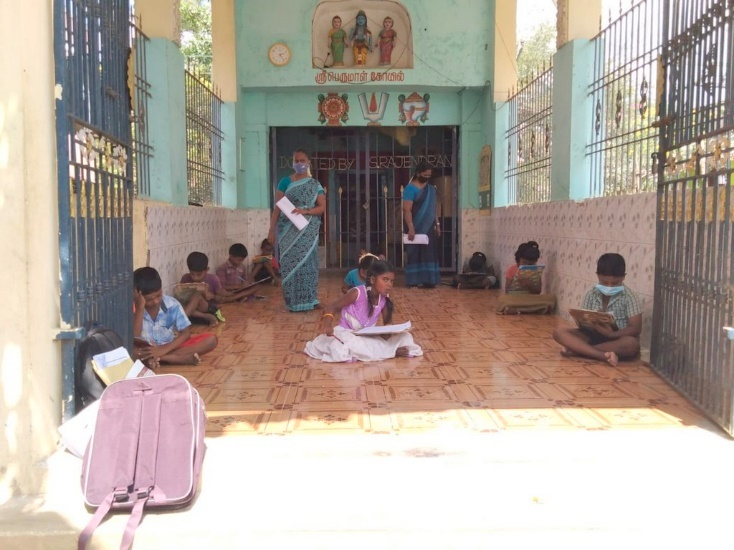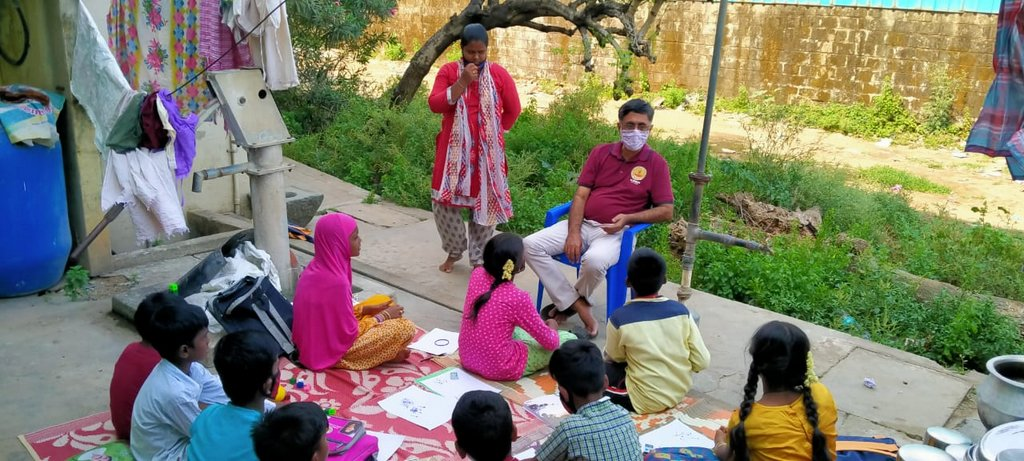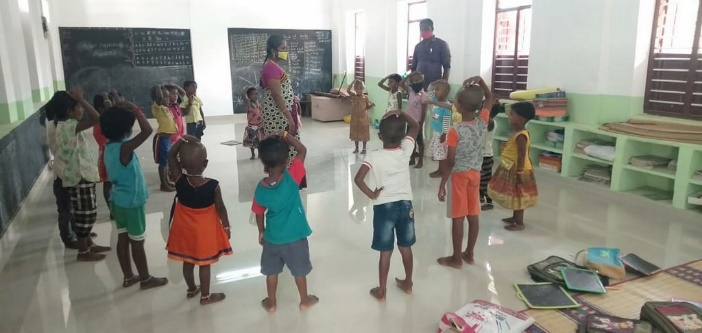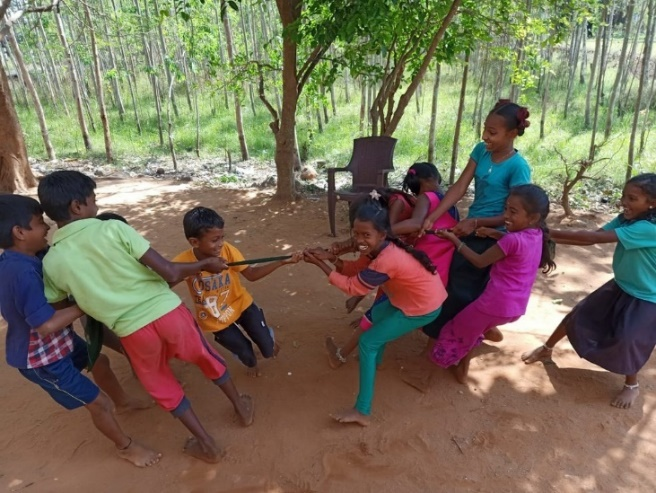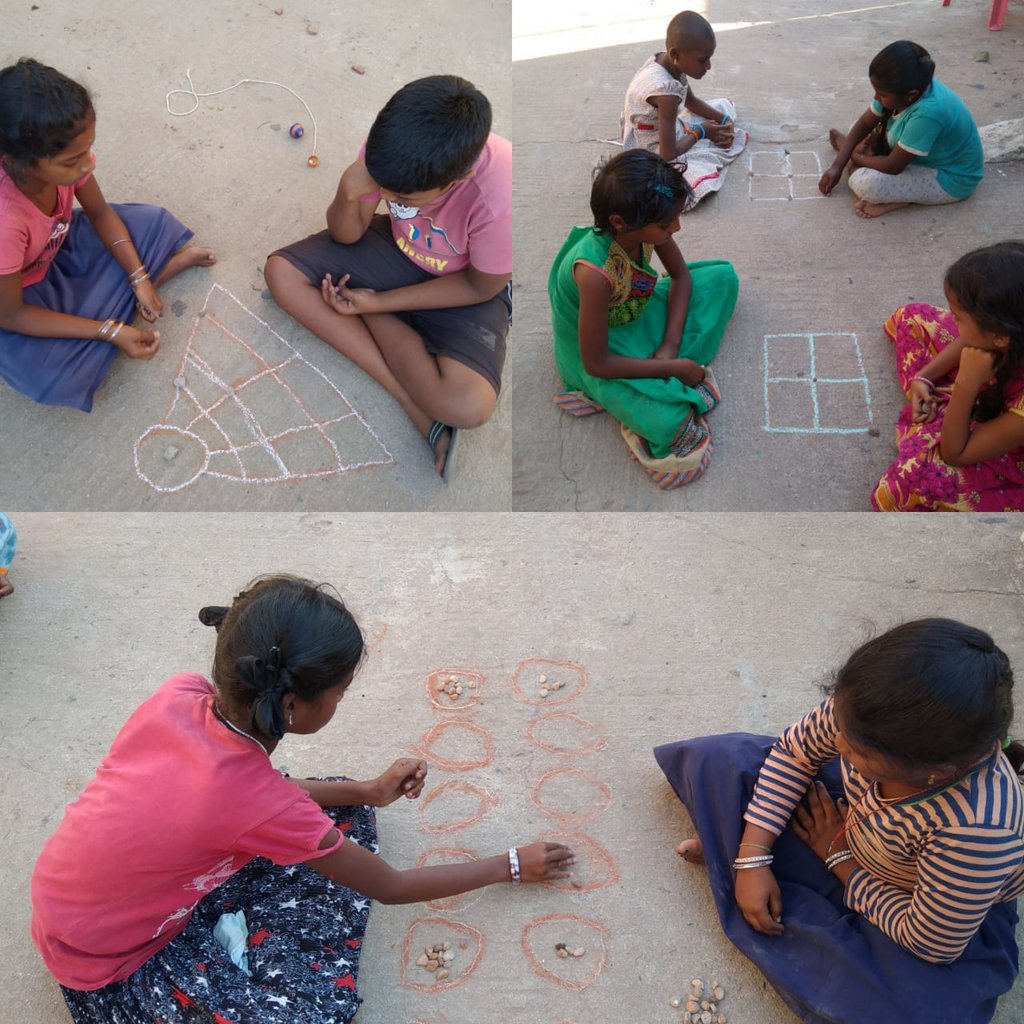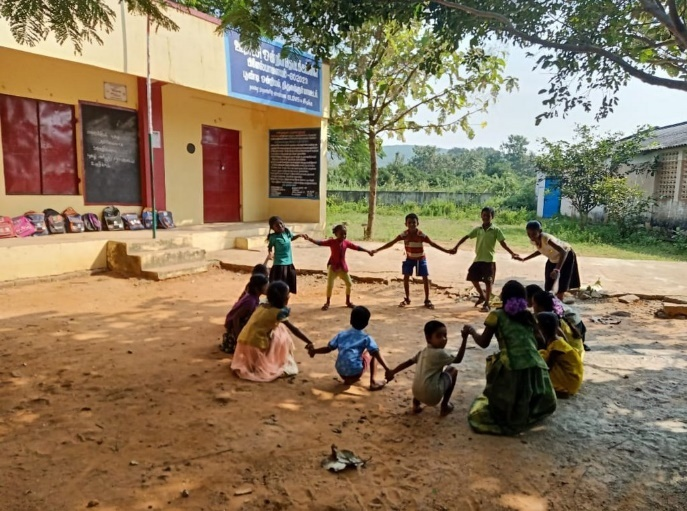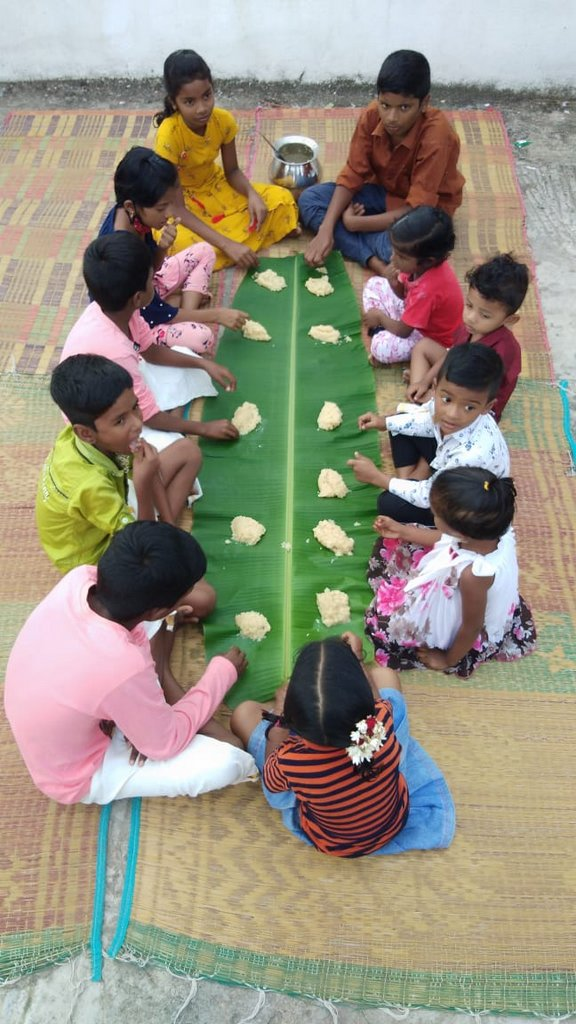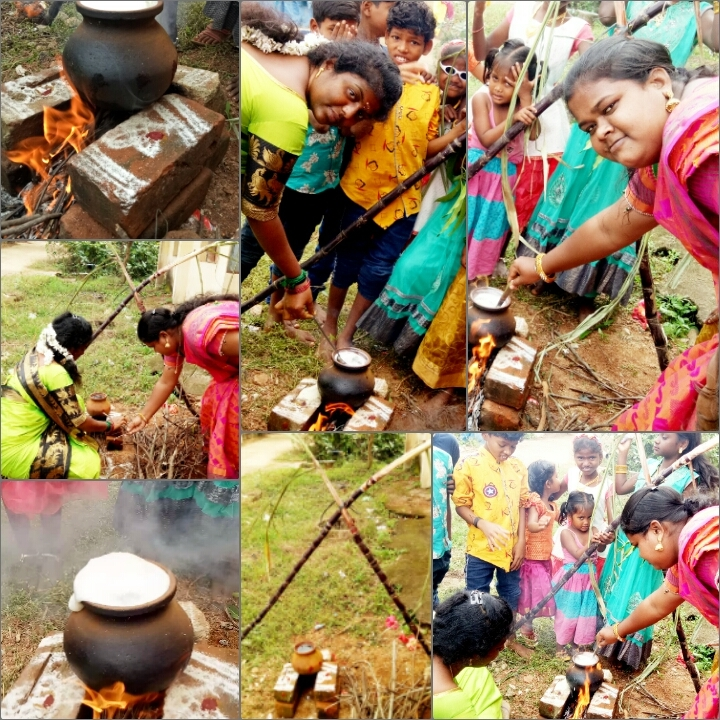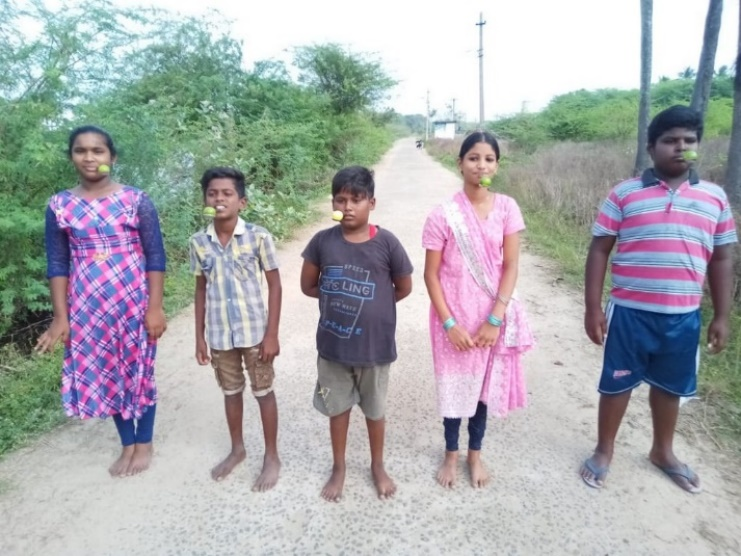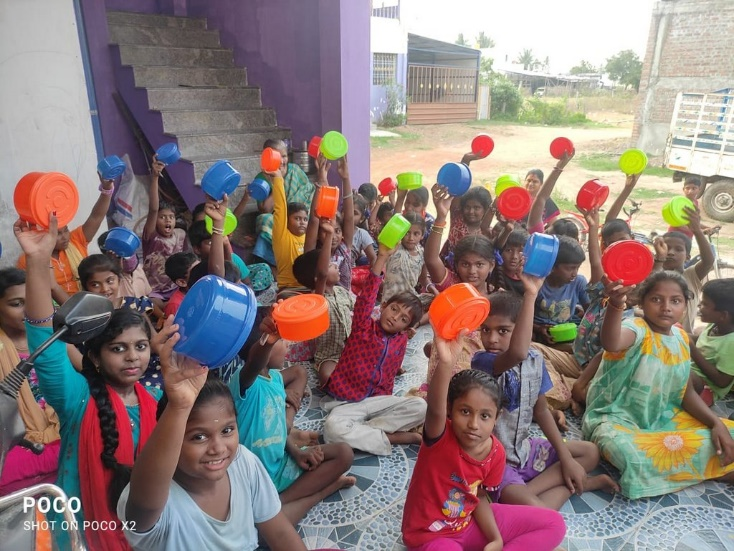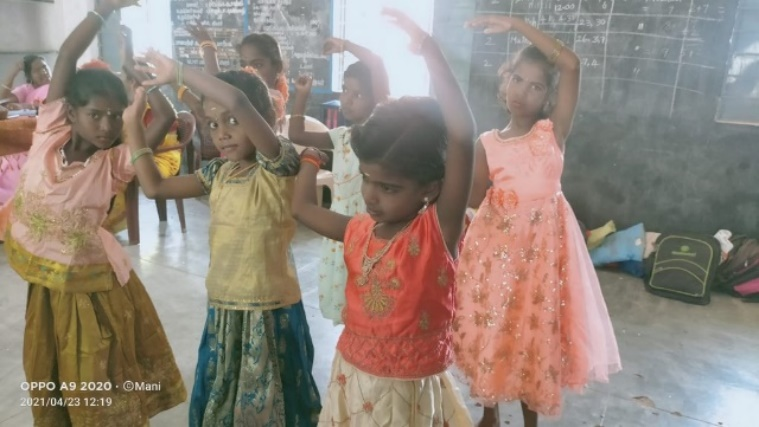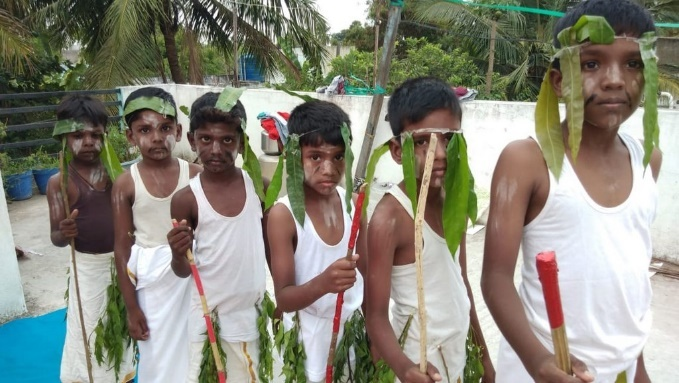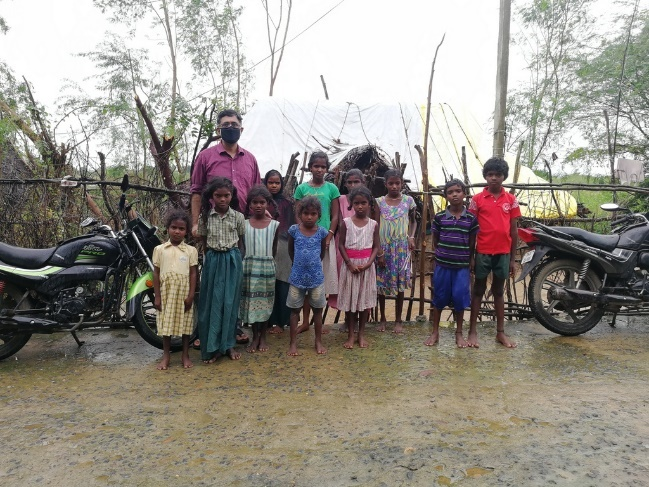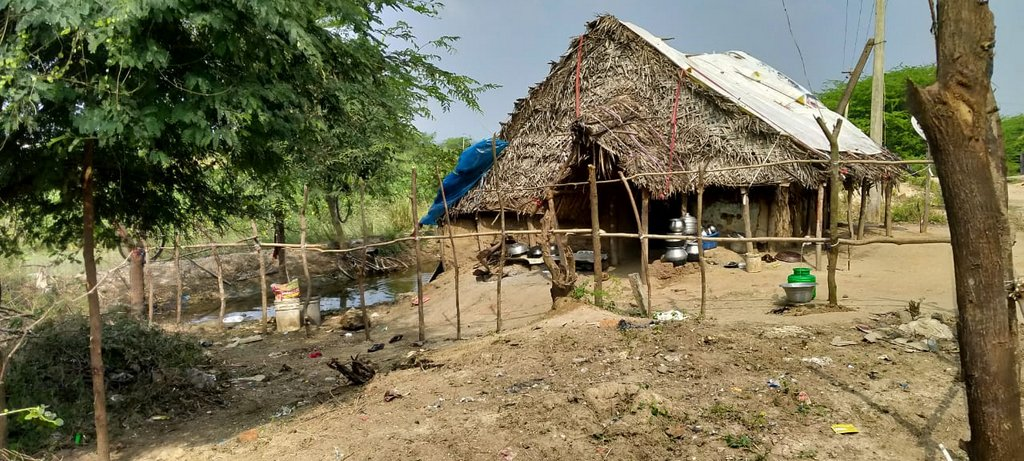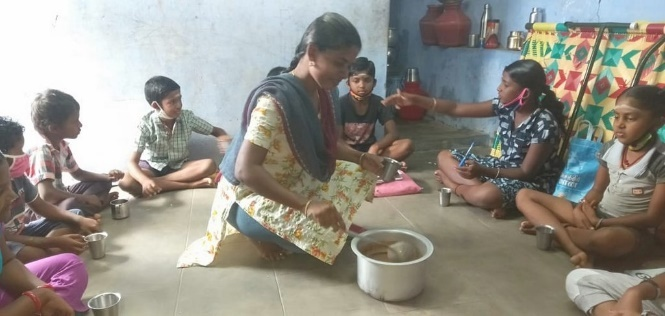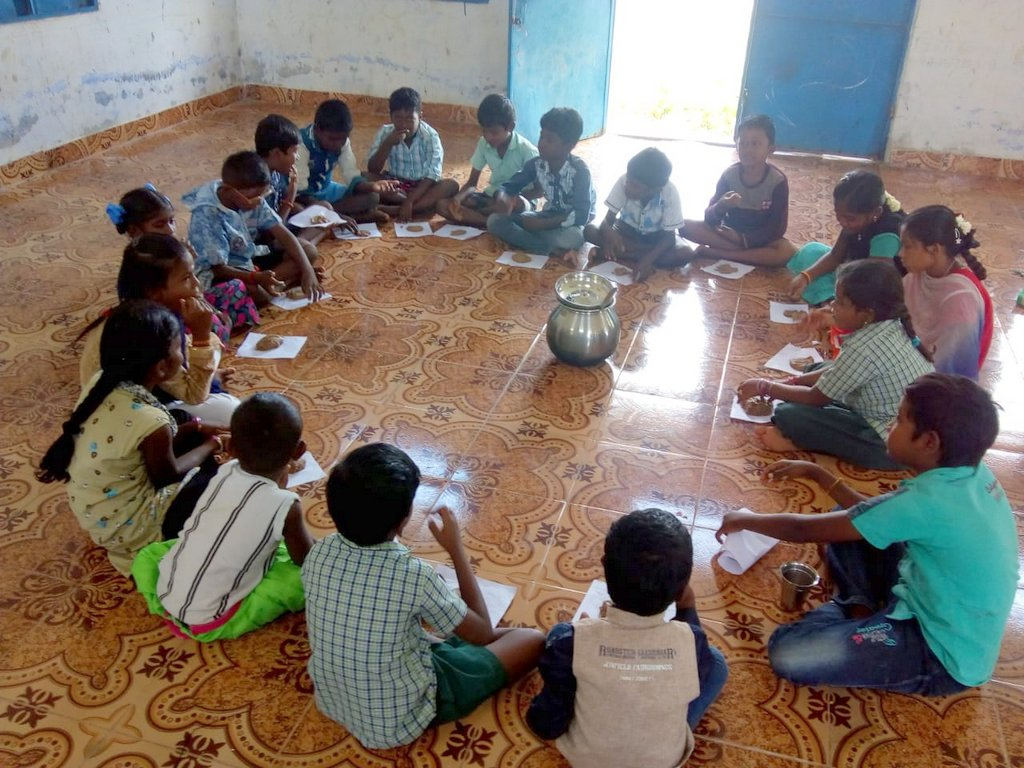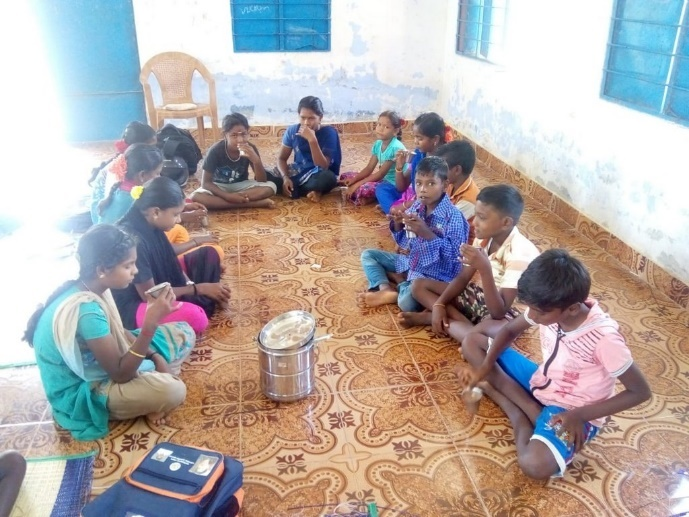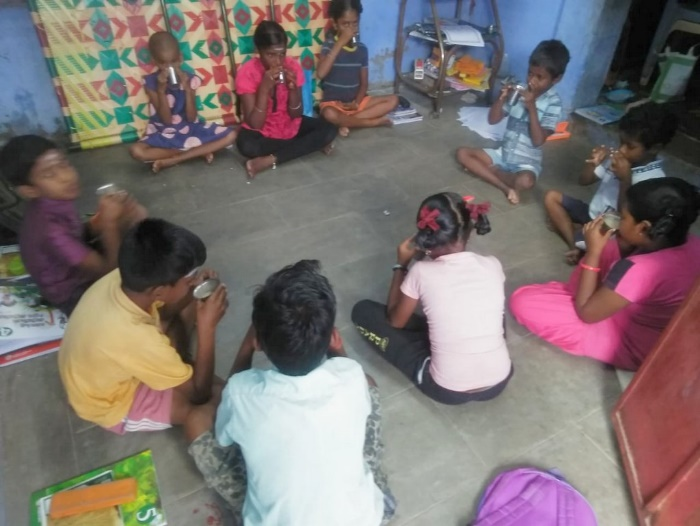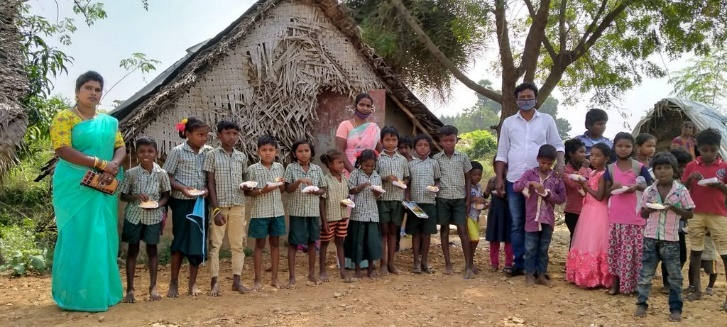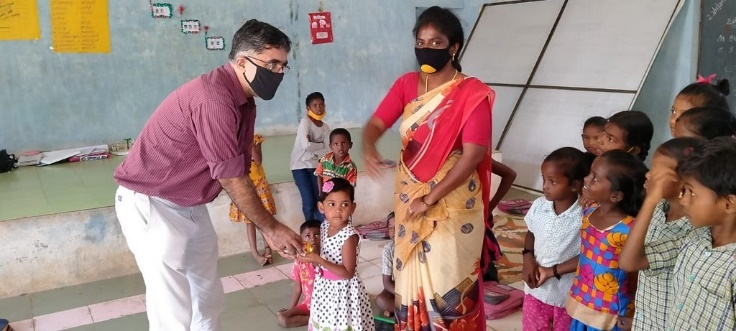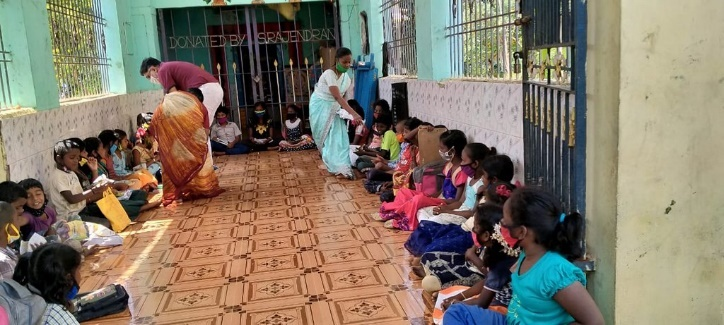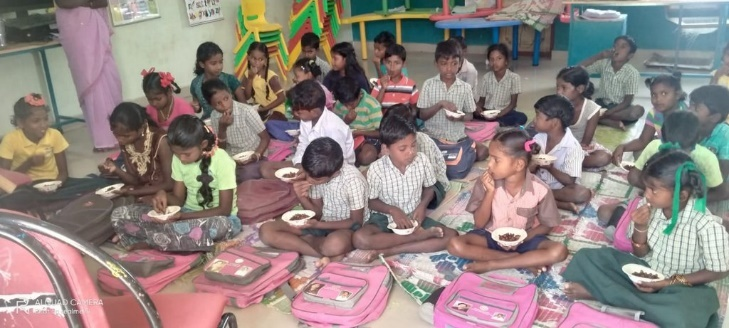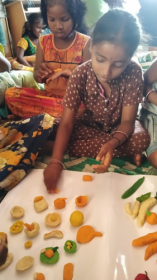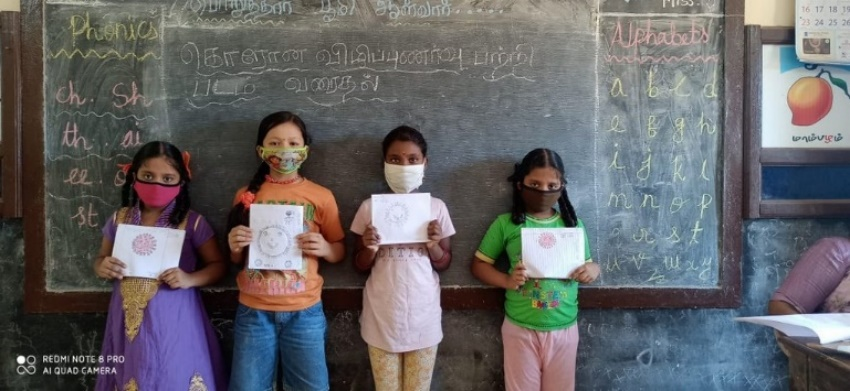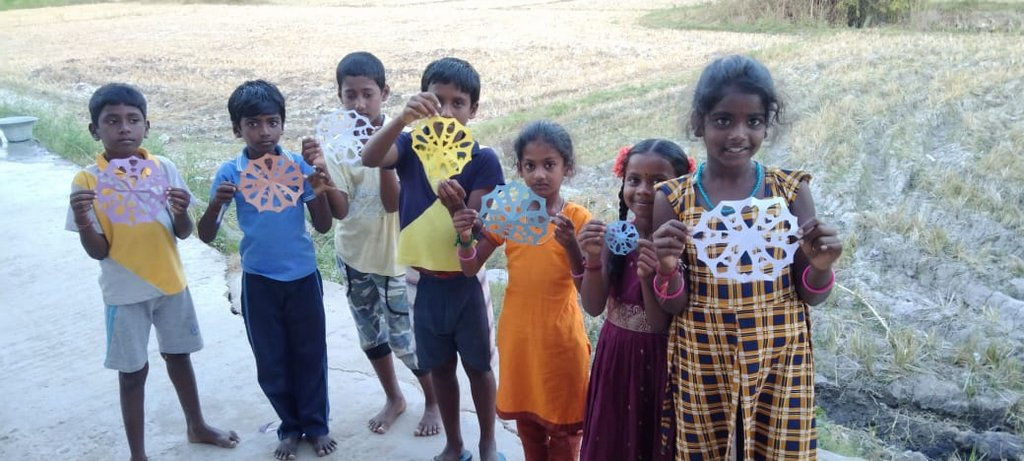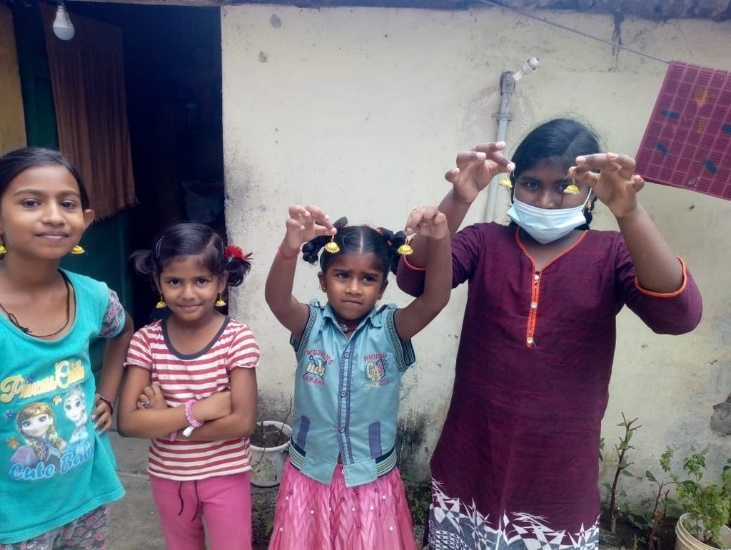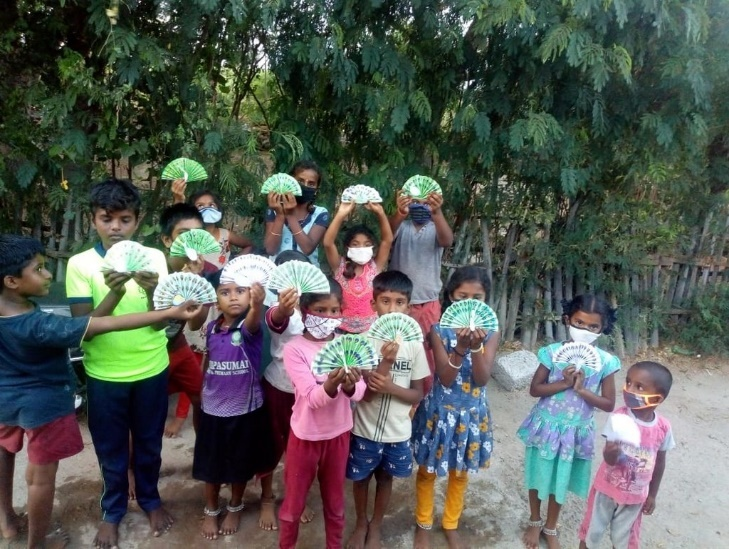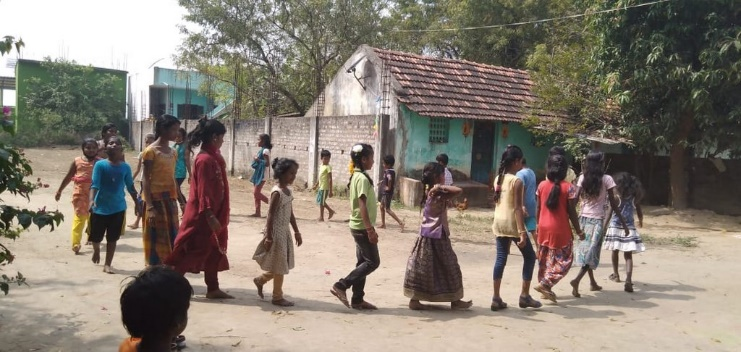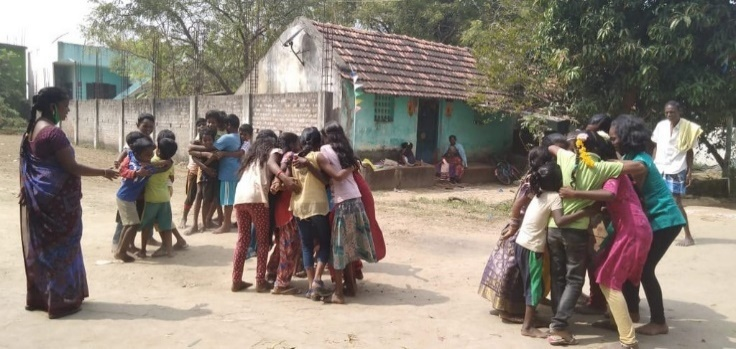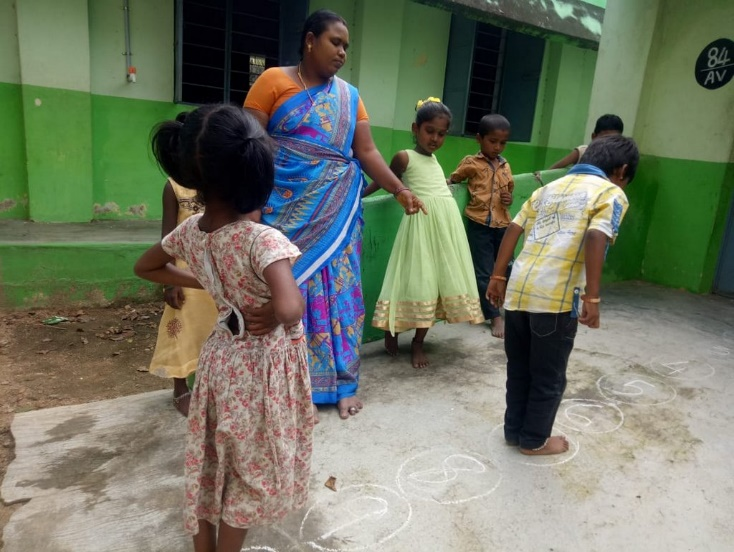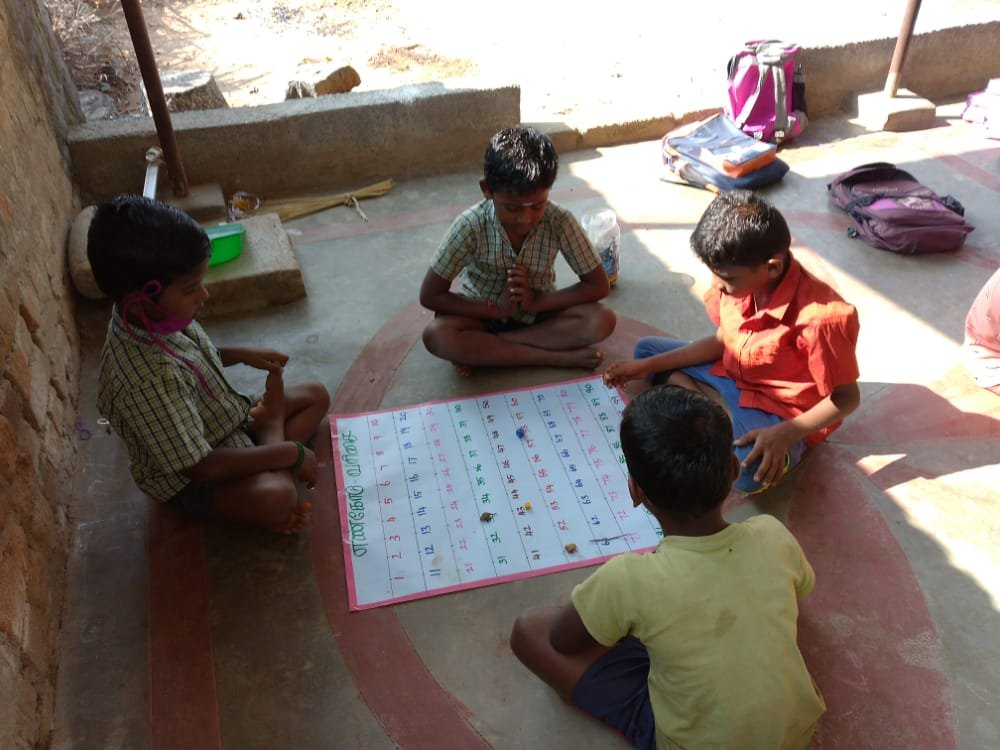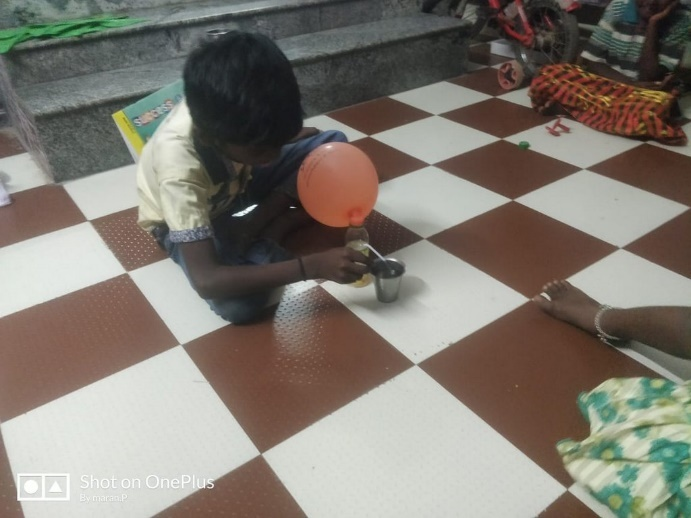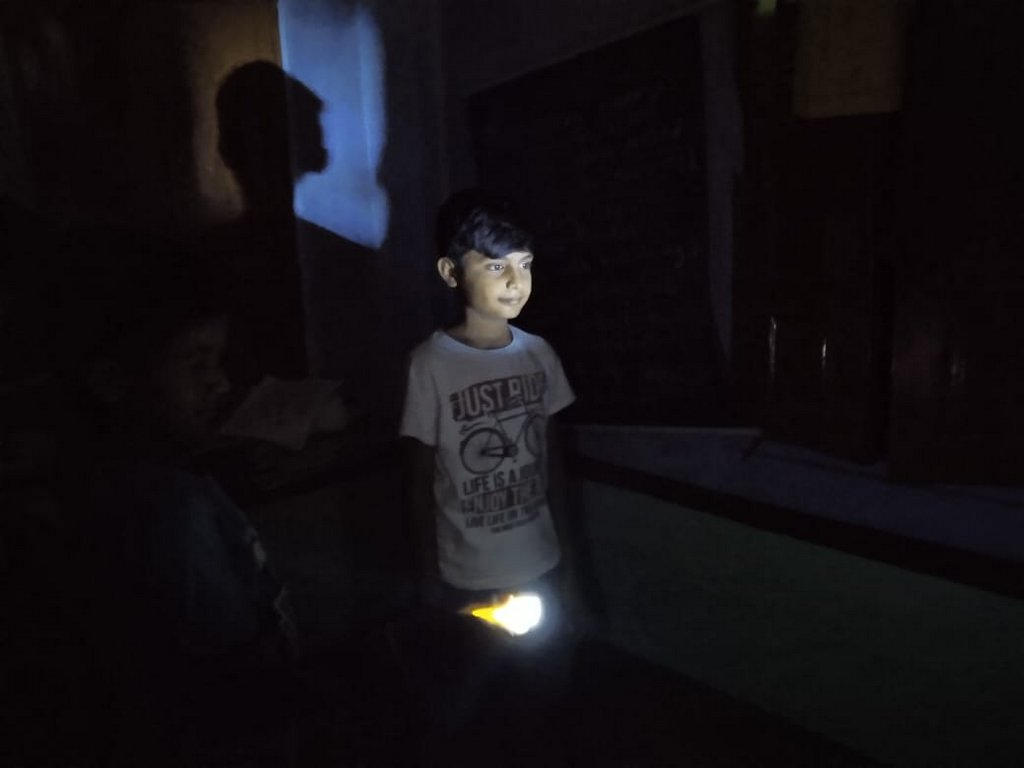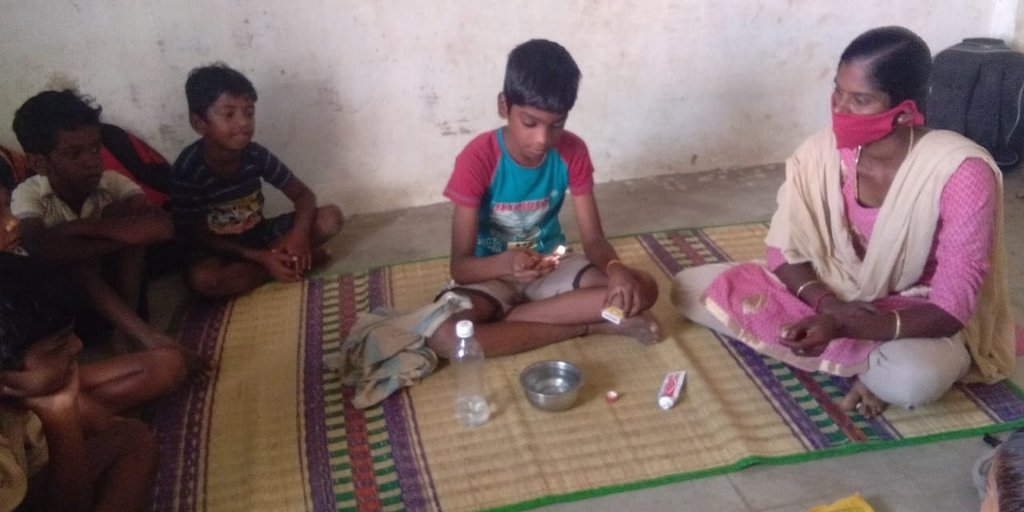Academic Year 2020-21 was a complete wash-out. The schools remained closed the entire year. Asha’s Mini-schools could continue the education for 1800 students the whole year. It was a year of struggles and innovation in our mini-school. Read our detailed report for all the information.
Asha Chennai Mini Schools
Asha Chennai has been running mini-schools for the entire 2020-21 academic year. The schools close in middle of March even before the academic year 2019-20 ended. When we started the mini-schools in June, we started it as a stop-gap arrangement, expecting the schools to reopen in 2 or 3 months. We absolutely did not expect these mini-schools to be the only source of education for these children for the whole academic year. Here is a report on the functioning of the mini-schools over the last one year.
Mini-Schools in Numbers
Here are the broad numbers before the election related closures started in late March.
| No of Mini Schools | 62 |
| No of Teachers | 74 |
| No of Batches | 116 |
| No of Children | 1800 |
| No of Covid Infections | ZERO! |
Note that a batch may be the same school running in two shifts or multiple teachers working at the school (and thus having multiple sections or batches).
The following graphs show how the mini-schools and their coverage has grown over the last one year from June 2020 to April 2021.
As you can observe in the graphs, close to 18 daring teachers started the mini-schools in June 2020. There was a significant ramp up in September and October in the number of schools as the first wave receded. Then over the next few months, there continued to be an increase in the number of batches and number of students. Then in March and April, because of the elections and the start of the second wave, schools started closing again. When we were fully utilising out 74 teachers, we managed to run 60+ schools in 110+ batches catering to 1800+ students.
Previous Reports on the mini-schools
We have written a few other reports about the mini-schools over the year. Please find them here.
Newspaper Articles
Article in The Hindu about our Mini-schools. Article in The Hindu about the school closuresVideos
Detailed video explaining how our mini-schools work (Tamil present). Short video on the mini-schools.
Other Reports
First Report on our Mini-school – talks about how it runs, safety, etc.
Second Report – talks more about out teaching methodology.
Third Report – Among other things it explains out Whatsapp forum for teachers.
Site Visit Reports – Reports on our site visits to mini-schools at Sangamam in Sept, Pearl in Nov,
PoornaVidhya and Sangamam in Dec.
Report on Oral Assessments at our Mini-schools and the children’s performance
Detailed report on the mini-school at Pondhavakkam.All these and more can also be seen in our mini-school page.
Safety and Hygiene
We laid down the rules for the safe running of the mini-schools as detailed in the first report. When we started the schools, Tamilnadu was in the middle of the first wave. We allowed the teachers to decide whether to run the mini-school. As the first wave receded, by about Sept or Oct, we decided to require that the teachers run a mini-school to get paid for their time. We continued to insist that the safety protocols be followed. But in practice, I have to say that most of the children were not masking in the school and many of the teachers were also not masking properly all the time. Despite these Asha Chennai ended the year with not a single student or teacher getting infected with Covid. Through our mini-schools we were not really expanding the social bubble of the teachers or the children. The children were already playing with each other without masks and there wasn’t any masking within the villages.
What was taught and how was it taught?
One of the important things we did was to design a curriculum specially suited for using in our mini-schools. The limited time available with the children, the informality of the schools, the range of ages of the children in a batch, etc. required us to innovate with what we considered essential to teach and the pedagogy we employed. See our second report for details of this curriculum.
As the months progressed without the schools reopening, we moved to more regular teaching of the lessons in the textbook, However, we retained our emphasis on conceptual clarity and learning through activities. As there was a good bit of churn in the children attending the mini-school in many of the schools, they also needed to keep reinforcing basic concepts.
We also retained our focus on craft activities. We realised the positive effect this was having on their
spatial reasoning. For instance, they could understand lines of symmetry in shapes much better. They
could also understand the 3-dimensional ideas of how Earth rotates around the sun, revolves around its
own axis which is inclined to the plane of its rotation around the sun etc. Further the craft activities were
greatly enjoyed by the children.
Did the Children really learn?
Have our mini-schools been able to arrest the slide in education? Have the children learnt as much as during a normal school year? We conducted the oral assessment back in Nov 2020 to be able to answer these questions. See the Oral assessment report to understand the answers to these questions. In short, our findings indicated the following,
- Children going to our mini-schools have improved upon their score from last year where we have such data available. In particular children who have been to the mini-school for longer are much more likely to have improved from their levels last year in all subjects.
- Children going to our mini-schools for a minimum of 3 months (at the time of the oral assessments) were at about the same level as the children last year in same classes.
Therefore, the mini-schools have not just arrested the slide in education but also taught the children as much as they would have learnt during a normal school year! Note that this is despite the fact that we are teaching for just 2 to 3 hours per day!
We also conducted a written assessment later in April just before the schools closed for summer. This wasn’t done rigorously like we usually do at the schools we support. While the oral assessments provide a standardised score to compare across years, the written assessment does not provide that. It is intended for identifying the areas where the children haven’t learnt as much. Since there are wide variations between the mini-schools, we did not see value in ensuring that the assessments are conducted very rigorously across the mini-schools.
However, we still felt there is value in conducting the assessment in each school. It helps the teacher bring the school year to a close. Assessments at the end of a term or school year, helps the children understand what they have learnt. This meta-learning, is very critical in the retention of the concepts learnt. We asked the teachers to conduct it in their own schools, correct the paper and discuss the results with the children. They did these. In their subjective opinions, most of the teachers felt the children have done as well as or better than the typical children they have worked with last year.
Beyond Academics
On my last trip to the mini-schools for the year 20-21, I visited the mini-school at Uthukottai my last stop on April 16th afternoon. This school had started just 2 or 3 weeks earlier. The teacher Divya, was teaching at a different village (Palavakkam) where we support the government school and where a large number of children were coming to the mini-school held in a Panchayat building. But the Panchayat asked us to move out in late March because of the upcoming elections. Divya then started this mini-schools right next to her house. This was an urban area in the small town of Uthukottai. The building where the teacher’s house was had several houses and in an open space (where people wash their clothes) this school was being held.
When I was sitting there, another mother brought her Kindergarten aged daughter also to the school. The girl was clearly intimidated by presence of me and Srinivasan. She was eyeing the other kids and what they were doing with curiosity and some anxiety as well. With Asha closing its school a week later, I am not sure if she would have got much from the mini-school.
Schools mean a lot more to the children than just what they formally learn there. It is the place where they are exposed to people beyond their family and neighbours. It is the place where they learn to socialise with their peers. They learn structured playing. They participate in functions. They learn to present themselves to their peers in functions and competitions. This is where they form bonds of friendship that will last them their lifetime. It is so much more than just the English and Maths and other subjects that they learn.
Nutrition at our Schools
One of the consequences of the school closures was that the mid-day meals from the schools stopped. While the parents were given equivalent amount of dry-rations, we were not convinced that the children were receiving adequate nutrition especially in the poorest areas where we work. These were places where we had even earlier noticed that most of the children come to class without having a breakfast and their concentration will not be in the class close to the lunch time. We decided to start a nutrition program in 7 of our schools – 2 in Thoothukudi and 5 in Thiruvallur. I visited some of these places in December before the start of our nutrition program.
In Thoothukudi we started this at the schools in Puthupatti (at out teacher’s home) and at Athikinaru (in the Panchayat Union school there). Our coordinator decided to really focus on the nutrition and prepared the flour of several millets. These were given to local cooks who made different items with that – nava dhaniya urundai (balls), kambu koozh (porridge), chola koozh, sweet kezhviragu koozh etc. These were prepared and delivered hot to the school. The children got them fresh.
At Thiruvallur, the schools were taking place in more informal places where this would have been difficult to implement. We instead purchased readymade things from a local shop and gave to the children. These included Ragi biscuits, other biscuits, Sundal (steamed lentils), juice, banana, etc. It also needs to be mentioned that in a couple of these places, the store owner also chipped in to provide something extra. On the day I went to the mini-school at Old Thirupatchur, each child received a Nendrapazham or Chevvazhai (premium varieties of banana which will themselves cost over Rs 10) in addition to the biscuits etc. for Rs 10.
Challenges
When we started the mini-schools, there were some challenges that were expected as we were venturing into a new area and at a time when there was a pandemic raging. We expected problems because of the Covid. Some schools did close down due to Covid. We actually anticipated more problems from the families of the teachers who were giving their home to run these mini-schools. The teachers’ families have been way more cooperative than we had any reason to expect. The sacrifices made by the teachers and their families really needs to be respected and remembered.
We also expected greater number of lost days due to weather etc. as the teachers run these mini-schools from their terrace and other open areas. As we let the teachers take this decision for their own school and if required adjust their school timing, I don’t think the number of lost days was any more than in a usual school. Covid related closures were also less of a challenge than we anticipated. Most villages cooperated with us in running the mini-schools. There weren’t any frivolous complaints against us. Only 3 schools closed due to Covid fear in the first wave. And before the second wave spread to rural TN, the mini-schools were already closed for the summer.
But beyond these, there were unexpected challenges.
1. Big changes in the students attending
Quite often, there were significant changes in the set of students attending a mini-school. Sometimes because we changed the location, a new set of students start coming to a mini-school and some of the current students stop coming. Other times, another organisation starts running a NFE centre in one of the hamlets and the students start going to that centre and stop coming to our mini-school. The new students coming to the mini-school wouldn’t have had any school this year. This meant that the teachers were finding it difficult to move along in the curriculum. They were constantly having to refresh the basic concepts.
2. Lack of seriousness about the mini-school
Even in many regular schools, attendance is a serious issue. Parents don’t bother to ensure that the children attend the school. They often take the children with them when they have to travel somewhere for a couple of weeks. These kinds of problems are even more severe in our mini-schools. Children are often not regular in their attendance. This compounded the problem described in the first point.
3. Lack of an external time-keeper
Usually at schools, the lesson in the textbook, the term schedule, the mandatory assessments etc. act as a time-keeper. While we do not want the teacher to feel constrained by that beyond a certain point, we felt the complete lack of it in our mini-school. Further since the mini-schools started at various points in time, it is difficult to expect them to keep to the usual term textbooks and lessons. And since Asha is managing these widely different mini-schools, we did not provide that schedule either. So many teachers slip into just repeating the same basic concepts.
As the mini-schools continue into the new year 21-22, we will be providing a little stronger structure and do our best to bring the children to their expected level. We will try our best to impress the importance of regular attendance on the parents as well. We will adopt some techniques like giving badges to children with perfect attendance etc. to improve the same.
Positive Learnings
Mini-schools provided Asha an opportunity to design and execute our own curriculum to some extent and our own methods of teaching. This has had a very salutary impact on our content work. We are enhancing all our lesson plans with the activities and worksheets designed for our mini-schools. Some other positive learnings have been,
1. Incorporating craft work into the curriculum
While we recommended that the teachers also incorporate craft work into the curriculum, it evolved to occupy an important position. Every mini-school was doing craft work at least one day a week. Firstly, the children really enjoyed it. The teachers used this as a reward for the children. Some teachers varied the day for craft work every week so that children have to attend all the days in order to not miss it.
We also anecdotally noticed that the children’s sense of symmetry, ability to visualise shapes etc. had improved a lot with this regular craft work. Mrs. Meena Suresh, during her visit in December, asked the children questions related to this and found them to be very good in this respect.
A number of teachers were very good at craft work. They learnt these often from Youtube videos or from other teachers and implemented them in their classes. Here is something one of our teachers (Kanagalakshmi from Pearl project) created which I thought went far beyond even the high standards of craft work at our schools.
Asha Chennai’s volunteers, many of them, come from a profile of IIT or IIM of US Univ degree. Their Maths, Science and English skills are usually far better than that of our teachers. But here in craft work, they were clearly in their own comfort zone and could have run circles around any of us volunteers!
We have to find a way to incorporate these craft works into their regular curriculum.
2. Social media platform for teachers to learn from each other
We initially created a Whatsapp group so that the volunteers, coordinators and lead teachers can monitor what is happening in the mini-school, check whether they are practicing social distancing and masking, understand where the mini-school is taking place etc. But as things evolved, teachers started posting photos and videos of their activities. This really transformed the way Asha as an organisation works.
Training in the past has often been top-down with external trainers or lead teachers teaching the junior teachers. During our meetings, we often ask teachers to demonstrate how they teach some lesson which elicited very little response from other teachers. But with this Whatsapp group, teachers really started communicating with each other. We would often see one teacher do something interesting and which is immediately replicated in many more mini-schools. This also provided a platform for teachers to correct each other when a manipulative was used wrongly or the children gave a wrong explanation for a science experiment. Couple of our teachers have gone on to set up their own Youtube channels to provide information about their activities.
This is once again something we should incorporate into our regular operations going forward.
3. Learning through activities and worksheets
While these are not new to Asha, the mini-schools forced us to invest heavily in this methodology and create resources that aid that. Given the short span of time in the class and the wide range of children (ages and abilities), heavy use of worksheets was required. Children could independently do their work or these could also be sent with the children as homework. Activities and stories to teach concepts work at multiple levels. For eg. There is a simple game where when the teacher tells a number say 3, the children have to group themselves in 3s. The children who are left out are out of the game. The children in classes 1 and 2 learn counting or just enjoy jumping about during this game. But children in classes 4 and above can be taught to anticipate how many people will be left out when the teacher calls out a number (i.e. it is the reminder when you divide the number of children by the number called out).
Into the next year …
We are entering the academic year 2021-22 in much the same way as we entered 20-21, in the midst of a pandemic wave. The second wave has been even stronger and will probably affect rural areas as well. I hope the government doesn’t continue its mistake for another year. School education should be one of the first services to revive and not the forgotten one like last year. The damage done to the children of India is incalculable.
Asha Chennai will once again open the mini-schools as soon as the local conditions warrant it. We will continue our curriculum with some tweaks to enable the mini-schools to keep pace with the lessons for the continuing students even when firming up the basics for new children. Our processes to ensure the safety will also continue. We will experiment with some processes like giving badges etc. to improve attendance. We will also try to learn from them to improve our working with the schools.
Once the schools reopen, or even as soon as the govt announces the reopening of the schools, significant work will start. Children are going to be coming to school with absolutely no education for a year and a half. Govt has come up with a bridge course. We will work with that and we will also make our plans to effect a quick return to normal.
